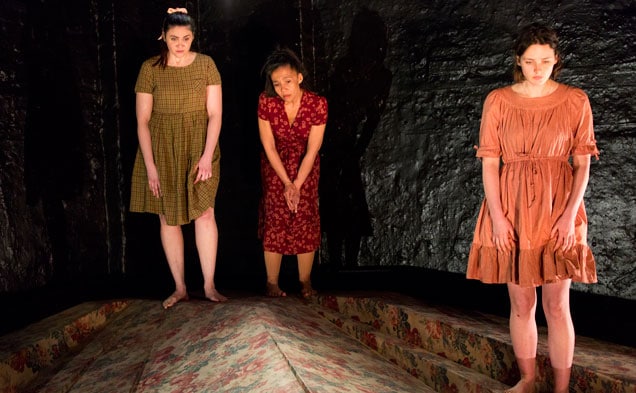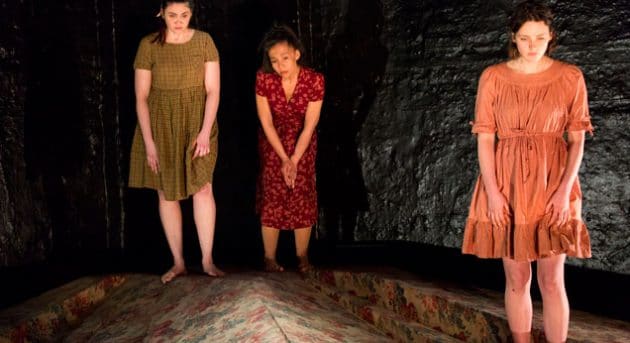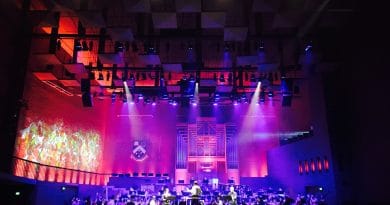Griffin: The Bleeding Tree
The Bleeding Tree won Angus Cerini the 2014 Griffin Award for New Australian Playwriting and its premiere production is running at Griffin’s Stables Theatre in Sydney. This is theatre made with passion, guts and the conviction that change is not only possible but inevitable.

It opens as a woman (Paula Arundell) and her daughters (Shari Sebbens and Airlie Dodds) stand next to the body of the husband, father and monster they just killed. Their world (designed by Renee Mulder) is filthy, sand-encrusted, floral wall paper that looks like it’s folded with knife-edge cuts and immediately feels like a forgotten Australian town in the middle of god-knows-where. As soon as they open their mouths, it’s hard to remember to breath for the next hour.
This is shattering theatre that grips your heart in a vice that doesn’t let go until the final syllable.
Cerini’s writing is somewhere between genius and freak. It’s damaged and violent and bloody and so f’ing beautiful that it’s like listening to music for the first time and wondering how noise can reach your soul like that.
Sounding like a ballad that recreates the idea of rhythm; it’s almost begging to be a libretto. There’s not a syllable out of place as each line defies the expected beat and creates one that catches the ear and refuses to be anything other than perfect.
And that’s just the language.
Filled with images that are unforgettably gruesome but exquisitely just, it’s a story that never gives away its next turn and could slip from hope to despair in a moment as the townsfolk discover that the man’s been killed.
But astonishing writing is only the beginning of this production.
Arundel, Sebbens and Dodds bring character and history and a wholeness to the script that makes the women so real that it’s hard to accept that they’re fiction.
Dodds lets us see the rat-eaten, maggot-infested body through her eyes and brings the doubt of a young woman who tries to hope that her father acted out of love. Sebbens never doubts but is revolted and broken enough to be the one who could carry on the violence – her saying “hit her” nearly broke me. And Arundell cuts our hearts so many times that her breaking-point speech – about how everyone knew it was happening – speaks for every woman and child who has lived in fear and been beaten, raped and abused.
Directed by Griffin’s Artistic Director Lee Lewis, The Bleeding Tree is so complete that it’s hard to differentiate the creative contributions. Without preaching or lecturing, it – literally – rips open the bleeding guts of domestic violence and imagines a world where this is unacceptable.
It’s unmissable.




